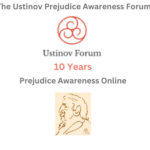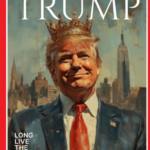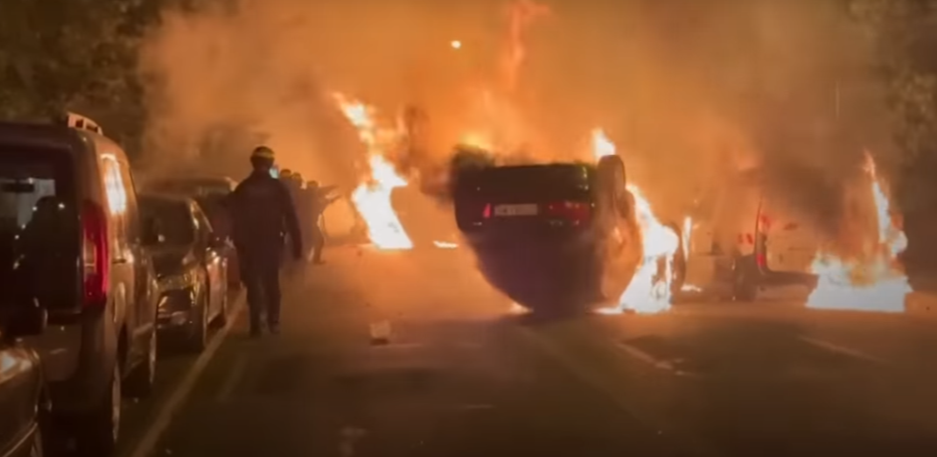Picture: The Paris steets burn in violent disruption.
On a day meant to celebrate a nation, in a week in which there is little it might seem, in it to celebrate, we, any of us, who care, must care to comment and react. It is the very purpose of our Forum. Bastille Day is, however, in a sense, a celebration of violence, as much as it is a celebration of a nation. The storming of the Bastille, that fabled but actual, invasion by a mob, of the infamous prison, like the very revolution it was the opening of, was a violent act. And it ushered in, not a period of peace, of democracy, or calm, but a terror, one so great, it earned the description, The Terror. Of course, later, with effort, and as a result of calmer dispositions, humane instincts and deeper thinking, liberty, equality and fraternity, if not really prevailing, certainly emerged.
France, like all great nations with important histories and international roles, is steeped in its own history and also in its unique mythology. Like the other two great powers who champion and extoll, liberty, the United States and United Kingdom, France has a culture it values and rightly. And it has like those two nations, a cultural history, as well as social or political history worth valuing.
Of the three, it is the United States that has had the real problem with violence at many levels. It also has had the biggest problem with race. In the remarkable, Civil Rights era, the two coincided. The United Kingdom has had the least problematic relationship with violence and the most harmony with regard to race. France is somewhere between the two. It is these factors, amidst others, that lies at the centre of the current crisis in France.
It is not that the founding of a modern nation by an act of violence, is a problem, ongoing, if ever. But what country really can look to a successful revolution. Usually it is the leaders who represent, not the violence of the revolutionary insurgence, but the intelligence of a more lasting foundation, upon which a nation depends, and a future can thus be built. In the violence of the invasion of Ukraine, by Putin, he removes himself from any future stability, even if he wins a war. Self defence, by the people of a country, invaded, is not insurrection or disproportionate, it is natural justice. It was ever thus. Invasions of other countries, unprovoked, like revolutions within countries, are never successful. Russia should know that, after its seventy years of enduring Communist tyranny.
Therefore, to meet, in response, a violent act by a police clearly out of control, with a violence by the protestors losing, all self control, is no solution to a problem that France has and knows it. It is certainly not self defence. The feelings of those protestors, however justified, cannot or should not in such a situation imply or earn, the description, of natural, or hard won, justice. Thus, hard won peace does not result, after the rage calms.
The fact is, France could learn something from its recent history. In electing a politician in, by most countries standards, the broad centre ground, as President, twice, defeating a politician of the far right, it has done something it ought to have benefitted from but has not really. It has rejected racism, or even nationalism. It, in the very interesting and rather particular way that the UK has, could itself, in its own way, also, celebrate its multiracial recent past, now present, and obvious future. And, like the UK, it could do so without only dwelling on a fear of losing its identity. As with the personal identity or gender identity of individual people, social, cultural, political identity of individual nations, can evolve and change. Such a way, gradual, incremental, can be no less, and in fact could be a great deal more, radical, than the intransigence of politicians, or the violence of protestors.
France suffers from its balancing act as much as it succeeeds. In its admirable cry of “Liberty, equality, fraternity,” it celebrates a mantra and what it stands for, that emerged in an act of violence and an era of terror, that were its opposite. In revolutions, there is preciuos little that emerges, of liberty, equality or fraternity. A certain great writer, the British man who spoke for all humanity, in both Animal Farm and 1984, George Orwell, showed us that. France suffers too, from a statism that is, though necessary to build cohesion sometimes, in any country with problems, yet too draconian and uneccessary at times also. A policing norm that has a ready, “where are your papers?!” smacks of dictatorial more than democratic. A legal norm that institutionalises, “guilty until proven innocent,” weakens the citizen despite the supposed embedded revolutionary zeal in the system.
Recent laws giving police more powers, and more violent ones, for example, to allow them to fire a gun at a car that does not stop if the police require it to, are literally asking for trouble, yet were enshrined by parliament and advanced by government. Macron was not President then, so this is one area that much criticised but rather maintream politician, cannot be criticised for! A country that regards its President as draconian, when he tries, with parliamentary support and government approval, to raise one of the democratic worlds earliest retirement ages by a couple of years, and faces another violent response for days or weeks, is an increasingly violent one. Not to mention, the violence amongst the Yellow Vest protestors, as a result of a carbon fuel tax the government tried to bring in, one similar to taxes most democratic countries accept! These are not arguments against protest, disagreement with politicians and policies is what is essential if liberty means anything in reality. These are arguments against violent protest, disagreeing causing fury and fires is what can only make anarchy become something of a reality.
The state in France needs to move back with its tendency for violence represented in its laws on shooting by police and the actions of those police. But the streets of France need to be places where people move back and forth peacefully in protest. The Civil Rights movement of the US, the Commonwealth of the UK, are examples of what can result from great leadership and good will. France has much to teach other countries about wellbeing and quality of life. But in both areas, it is losing its way because of its failings in areas it needs to address more than ever before.
Violence, uncalled for, more extreme than the original violent act, not in self defence, doing untold damage, causing worse fear, killing other people, cannot, on the streets of a modern democracy, be the answer to a systemic failure. Thousands of fires set, cars destroyed, shops damaged police and protestors injured, is revolting, not revolution. However revolting was the original killing of a young man of North African ethnicity, the answer must lie elsewhere. The attack of the home of the Mayor of the suburban Parisian L’Hay Les Roses area, his house set on fire as a result, while his wife and two children were asleep inside, is being investigated as attempted murder. The family of the victim of violent police, should not be added to in numbers of greiving, by the families of the victims of violent protest.
France, like all of us here and now and ever, must deal with prejudice. It only adds to it and worsens it by destroying the very peacfulness that should lie at the heart of a democratic, not dictatorial culture. The parliamentary leader, Senator Bruno Retailleau, of the centre right Republicans Party, is already causing a tension in refering to “regressive,” qualities second generation ethnic French youth have, implying their difference as a negative factor. An crisis level event such as this recent shooting and the reaction, can only play to the promotional strengths, despite their indeologicial weaknesses, of the farther right, on an issue it often relishes.
Author Profile
- Lorenzo Cherin works as a freelance actor, writer, filmmaker, educator. He is a longstanding member, and In-House Writer and Co-Ordinator, of The Ustinov Prejudice Awareness Forum. In this capacity he also works in association with his partner, Lanechka Fevola, who contributes to projects in development and particularly her original art work, for the the Ustinov Forum.
Latest entries
 UncategorizedApril 1, 2025Wise Fools
UncategorizedApril 1, 2025Wise Fools UncategorizedFebruary 19, 202510th Year
UncategorizedFebruary 19, 202510th Year UncategorizedJanuary 27, 2025Holocaust Memorial
UncategorizedJanuary 27, 2025Holocaust Memorial UncategorizedJanuary 20, 2025Irony Day
UncategorizedJanuary 20, 2025Irony Day

